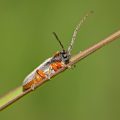Overview of Pest Control in UK Homes
Pest control is an essential aspect of home maintenance for many British households. The UK’s temperate climate, coupled with varied housing types ranging from historic terraced houses to modern flats, creates ideal conditions for pests such as mice, rats, wasps, bedbugs, and ants. Additionally, urban environments like London, Manchester, and Birmingham often face unique pest challenges due to population density and older building stock. Homeowners are not only concerned with the discomfort and health risks that pests bring but must also adhere to local regulations regarding pest management. UK law requires property owners to take reasonable steps to ensure their premises remain free from vermin, particularly under the Prevention of Damage by Pests Act 1949. Local councils may intervene if infestations are reported and deemed a public health risk. Understanding the specific pest issues prevalent in British homes and the legal responsibilities attached is crucial when considering whether to engage professional services or attempt do-it-yourself (DIY) solutions. This context sets the stage for evaluating the pros, cons, and cost implications of both professional and DIY pest control approaches in the UK.
Understanding Professional Pest Control Services
Professional pest control services in the UK are governed by a robust framework of service standards, industry qualifications, and statutory obligations designed to ensure the safety and efficacy of pest management. When engaging a professional provider, British homeowners can expect adherence to the Codes of Best Practice set out by bodies such as the British Pest Control Association (BPCA) or the National Pest Technicians Association (NPTA). These organisations require their members to maintain high operational standards and ongoing training.
Qualified technicians typically hold certifications such as the RSPH Level 2 Award in Pest Management, demonstrating competence in handling chemicals safely and applying appropriate control methods. In addition, professionals must comply with UK legislation including the Control of Pesticides Regulations 1986 and the Wildlife and Countryside Act 1981, ensuring that any treatment is both legal and environmentally responsible.
The table below outlines key elements distinguishing UK professional pest control services:
| Aspect | Description |
|---|---|
| Accreditation | Membership in BPCA/NPTA; proof of ongoing CPD |
| Legal Compliance | Adherence to Health & Safety, pesticide regulations, and animal welfare laws |
| Insurance | Public liability insurance to cover accidental damage or injury |
| Treatment Methods | Use of approved products and integrated pest management strategies |
| Documentation | Provision of risk assessments, treatment reports, and safety guidance |
This rigorous approach provides homeowners with peace of mind, knowing that interventions are not only effective but also compliant with all relevant British legal requirements.

3. DIY Pest Control: British Practices and Products
In the UK, do-it-yourself pest control is a common first line of defence for homeowners facing unwanted rodents, insects, or other nuisances. Many Brits prefer to try resolving issues themselves before calling in professional services, both for reasons of cost-effectiveness and practicality. This approach is also shaped by the broad range of legally available products and a cultural ethos that values self-reliance.
Popular DIY Pest Control Methods in the UK
The most widely used DIY solutions include traps, sprays, powders, gels, and natural deterrents. The table below provides an overview of common pests and corresponding over-the-counter remedies:
| Pest | Typical DIY Solution | Legal Status/Availability |
|---|---|---|
| Mice & Rats | Snap traps, bait stations, ultrasonic repellents | Widely available in supermarkets, hardware shops |
| Ants | Bait stations, ant powders, barrier sprays | OTC at garden centres and chemists |
| Wasps | Wasp sprays, foam nest destroyers | Available seasonally; must follow safety instructions |
| Bed Bugs | Insecticide sprays, mattress encasements | Available but often require multiple applications |
| Moths | Mothballs, pheromone traps, cedar products | Commonly stocked in home stores |
Legal Considerations for DIY Pest Control Products in the UK
The sale and use of pest control products are regulated under UK law to ensure public safety and environmental protection. Only approved pesticides and rodenticides may be sold to the public. Homeowners must follow label instructions meticulously; misuse can result in penalties under the Control of Pesticides Regulations 1986 or the Wildlife and Countryside Act 1981 if protected species are harmed.
Cultural Attitudes Towards Self-Managing Pests
A significant proportion of British households view DIY pest control as a sensible way to manage minor infestations. There is also a perception that small problems can be handled with readily available products without incurring the higher costs associated with professional intervention. However, repeated failures or health risks often prompt homeowners to escalate to professional services.
4. Advantages and Disadvantages: Professional vs DIY
When it comes to tackling pest problems in British homes, homeowners often find themselves weighing up the pros and cons of professional pest control services versus do-it-yourself (DIY) approaches. The choice depends on factors such as cost, effectiveness, safety, convenience, and long-term outcomes. Below is a detailed comparison from a British homeowners perspective.
Comparative Overview
| Professional Pest Control | DIY Pest Control | |
|---|---|---|
| Effectiveness | High – Qualified technicians use regulated products and strategies tailored to specific pests. | Variable – Success often depends on accuracy of diagnosis and correct product usage. |
| Cost | Generally higher upfront; may include follow-up visits or guarantees. | Lower initial outlay; recurring purchases may add up over time. |
| Safety | Professionals are trained in safe application, minimising risks to family and pets. | Potential safety concerns if instructions aren’t followed precisely. |
| Convenience | Hassle-free – Professionals handle everything, including difficult infestations. | Time-consuming; requires research, purchasing products, and repeated treatments. |
| Regulatory Compliance | Services comply with UK legislation (e.g., COSHH, CRRU), ensuring legal standards are met. | Risk of breaching regulations if unapproved substances are used or disposed of incorrectly. |
| Long-term Results | Often provides more durable solutions with advice on prevention. | Short-term fixes are common; may not address underlying causes. |
The British Homeowner’s Perspective
When Professional Services Make Sense
If the infestation is severe, recurring, or involves regulated pests such as bed bugs or rodents, hiring a reputable pest control company is typically advisable. Professionals bring peace of mind by ensuring compliance with UK safety standards and providing documentation that can be useful for landlords or insurance claims.
When DIY May Suffice
For minor issues—such as an isolated ant trail or a few wasps in the loft—DIY methods purchased from high street retailers or garden centres can be effective and budget-friendly. However, always read product labels carefully to ensure legal and safe use according to British guidelines.
Conclusion: Balancing Priorities
The decision ultimately hinges on balancing cost, risk tolerance, and the urgency of results. Many British homeowners opt for a hybrid approach—trying DIY first for small problems but calling professionals when safety, legality, or persistent pests become concerns.
5. Cost Considerations and Value for Money
When weighing the choice between professional pest control services and DIY solutions in British homes, cost is often a decisive factor. It is essential to look beyond just the upfront expenditure and consider the long-term value, hidden costs, typical UK fee structures, and the possible impact on insurance premiums.
Typical Fee Structures in the UK
| Service Type | Average Cost per Visit | Inclusions |
|---|---|---|
| Professional Pest Control | £80–£150 (common pests) £200+ (specialist treatments) |
Assessment, treatment, follow-up, guarantee (varies by provider) |
| DIY Pest Control | £10–£50 (per product/kit) | Chemicals or traps only; no professional advice or guarantees |
Analysing Long-Term Value
While DIY methods may appear more economical initially, they often require repeated purchases if infestations recur or are not fully eradicated. In contrast, professional services typically offer more durable solutions with warranties or follow-up visits included, which can provide better value over time.
Hidden Costs to Consider
- Ineffective Treatment: Failed DIY attempts can lead to further property damage or expanded infestations, increasing overall costs.
- Health & Safety Risks: Incorrect application of chemicals may pose health hazards and potential legal liabilities.
- Time Investment: DIY approaches often demand significant personal time for research and application.
Insurance Implications
Some UK home insurance policies may exclude cover for damage caused by untreated pest infestations or require evidence of professional intervention. Engaging certified pest controllers could support future insurance claims and potentially reduce premium risks by demonstrating proactive property maintenance.
Summary Table: Cost Comparison & Value Factors
| Professional Service | DIY Approach | |
|---|---|---|
| Initial Cost | Higher (£80+) | Lower (£10+) |
| Long-Term Effectiveness | High (with guarantee) | Variable/Low |
| Hidden Costs | Minimal (if reputable) | Potentially significant |
| Insurance Impact | Positive/supportive | No effect/potential risk |
The true value for money lies not only in the immediate expense but also in the reliability, safety, and long-term protection provided. Homeowners should therefore assess both visible and hidden costs before making a decision tailored to their unique circumstances.
6. Legal and Safety Implications
Whether opting for professional pest control services or a DIY approach in the UK, homeowners must remain aware of legal requirements and safety considerations. Below is an overview of how regulations and associated risks can influence your decision-making process.
UK Pest Control Laws and Regulations
The UK has strict legislation governing pest control, aiming to protect public health, wildlife, and the environment. Key laws include:
- The Prevention of Damage by Pests Act 1949: Requires property owners to keep premises free from rats and mice.
- The Control of Pesticides Regulations 1986 (COPR): Regulates the sale, supply, and use of pesticides, with specific provisions for safe handling and application.
- Wildlife and Countryside Act 1981: Offers protection to certain species and restricts methods that may harm non-target animals.
- Health and Safety at Work etc. Act 1974: Imposes duties on employers (including pest control firms) to safeguard their staff and clients during treatments.
Safety Considerations: Professional vs DIY Methods
| Professional Pest Control | DIY Pest Control | |
|---|---|---|
| Legal Compliance | Licensed technicians adhere to all relevant legislation and codes of practice. | Homeowners risk breaching laws by using restricted substances or harming protected species. |
| Chemical Handling | Pest controllers are trained to apply chemicals safely, minimising exposure risks. | Improper storage or use can endanger residents, pets, and local wildlife. |
| Waste Disposal | Professionals follow guidelines for safe disposal of hazardous materials. | Lack of knowledge may lead to environmental contamination or fines. |
| Personal Safety | Appropriate personal protective equipment (PPE) is always used. | Poor PPE practices increase the risk of injury or poisoning. |
Risks Associated with Non-Compliance
Failure to comply with UK pest control laws can result in prosecution, hefty fines, or civil claims—particularly if neighbouring properties are affected. Moreover, incorrect use of pesticides can cause accidental poisoning or long-term health problems. Homeowners should always verify whether chemicals are approved for domestic use and consult labels for instructions. For complex infestations or where legal ambiguity exists (e.g., dealing with bats or birds), engaging a certified professional is strongly recommended to avoid legal pitfalls and ensure effective results.
7. Guidance on Making the Right Choice
Deciding between professional and DIY pest control in British homes depends on a range of factors unique to each household. To assist British residents in making an informed choice, it is important to evaluate not only the type and scale of infestation, but also budget, time availability, and safety considerations. Below, we provide practical guidance tailored to typical UK circumstances.
Key Considerations for British Residents
- Type of Pest: Common pests in the UK include rats, mice, wasps, ants, bedbugs, and moths. Some infestations (such as bedbugs or persistent rodents) are notoriously difficult to manage without specialist intervention.
- Scale of Infestation: Minor outbreaks may be manageable with reputable DIY products available at British retailers like B&Q or Screwfix. Larger or recurring issues often require professional assessment.
- Health & Safety: Certain chemicals used in pest control can be hazardous if misapplied. Households with children, elderly residents, or pets should consider professional services for added peace of mind and adherence to UK health and safety regulations.
- Legal Obligations: Landlords in England, Wales, Scotland, and Northern Ireland have specific legal responsibilities regarding pest control under various housing acts. Professional documentation may be necessary for tenancy disputes or insurance claims.
Cost Comparison Table
| Pest Type | DIY Estimated Cost (GBP) | Professional Estimated Cost (GBP) |
|---|---|---|
| Mice/Rats | £10–£30 | £80–£150 per visit |
| Wasps Nest Removal | £8–£25 | £60–£100 per nest |
| Bedbugs | £20–£50 (limited efficacy) | £150–£400 per room |
Checklist for Decision-Making
- If you suspect a minor issue and feel confident using over-the-counter products safely, DIY may be suitable—particularly for isolated incidents involving insects.
- If there is any doubt about the severity of the infestation, evidence of repeated problems, or concerns regarding health risks, consult a local British Pest Control Association (BPCA) member for a professional survey.
Additional Resources
The BPCA website offers advice on recognising common pests and finding accredited local professionals. Local councils across England, Scotland, Wales, and Northern Ireland sometimes offer subsidised pest control services—check your council’s website for details.
In summary, British residents are encouraged to balance cost considerations against long-term effectiveness and safety. When in doubt, a professional approach ensures compliance with UK standards and greater peace of mind.


